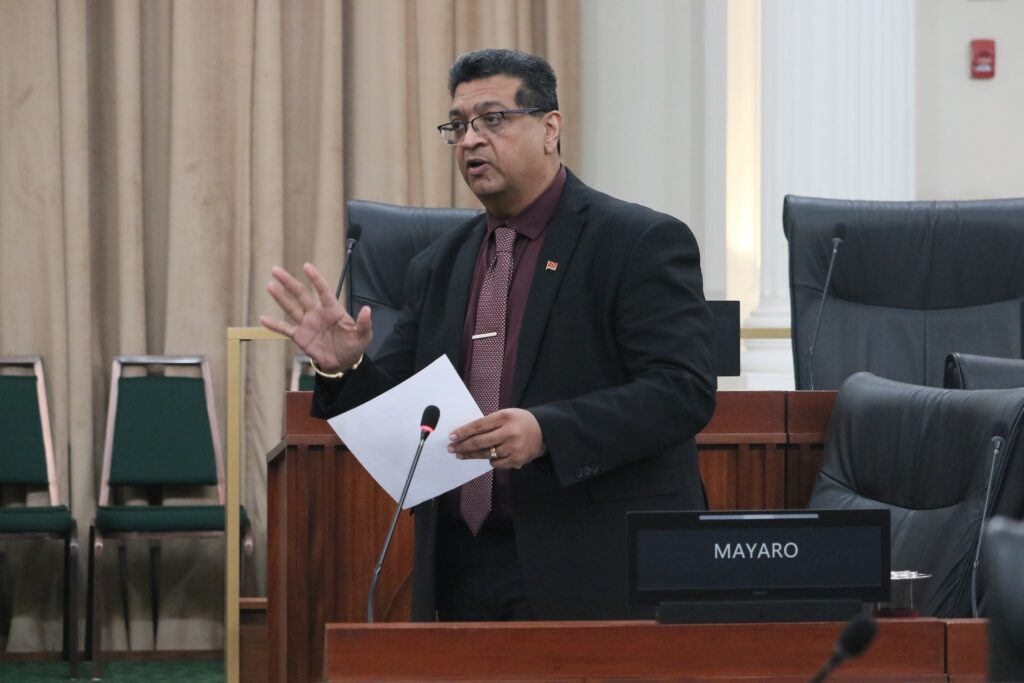Sustainable solution to squatting

Rushton Paray
Mayaro MP
The recent protests at Ramjattan Trace, Arima, highlight the growing squatting crisis in TT.
Over 60,000 families live in unregulated settlements, facing poor living conditions and tenuous legal status.
In this specific case, residents report receiving eviction notices that lack official verification, creating significant fear and confusion. Many of them have lived on the land for over a decade, some even building permanent structures. The lack of clear communication and planning from the authorities exacerbates this already difficult situation, leaving residents in limbo.
Residents of Ramjattan Trace claim they were promised compensation and assistance, but no tangible support has been delivered. Furthermore, conflicting messages about the land’s ownership – shifting from private entities like Clico and HCL to the Commissioner of State Lands – have compounded the uncertainty.
For more than 40 families, the prospect of losing their homes within days of receiving poorly documented eviction notices is devastating. This case highlights a broader issue: the absence of structured policies to address squatting humanely and sustainably.
Immediate actions must address the confusion and prevent further harm to the affected families. The government should issue a formal statement to clarify the authenticity and legal basis of the eviction notices. Transparency is essential to rebuilding trust and ensuring that residents understand their rights and options.
Evictions should be paused until all questions surrounding the notices and ownership of the land are resolved. Without such immediate intervention, the situation risks escalating further.
Beyond short-term fixes, a comprehensive strategy is necessary to address squatting effectively. Relocation of the affected residents to planned settlements is one viable solution.
These new communities should include basic amenities such as clean water, electricity, and sanitation, alongside access to schools, healthcare, and employment opportunities.
Such settlements should be designed to improve the standard of living for residents while integrating them into broader society. Public-private partnerships could help finance these developments, with incentives offered to developers to build affordable housing.
Legal reforms are also critical. Residents like those at Ramjattan Trace, who have occupied land for many years, should be eligible for expedited processes to obtain Certificates of Comfort or other forms of legal recognition.
Providing these residents with some form of security tenure can ease tensions and encourage their co-operation in relocating.
At the same time, the Land Settlement Agency (LSA) should be empowered to manage such transitions effectively, impose penalties for illegal encroachments, and oversee the development of planned settlements.
Health and safety must also be addressed. Squatting often leads to unsanitary conditions and inadequate healthcare, endangering the well-being of residents. In the case of Ramjattan Trace, mobile health clinics and temporary sanitation facilities should be deployed to address these risks while residents transition to new housing.
Such measures demonstrate a commitment to public health and help mitigate immediate challenges during relocation.
Economic empowerment is another key component of any sustainable solution. Relocating families without addressing their economic needs will likely perpetuate poverty.
For displaced families, the government should establish training programmes and micro-enterprise zones in their new communities. Partnerships with industries could create jobs, while childcare services and job placement programmes could help single parents support their families.
Addressing economic needs ensures that relocation efforts improve lives, rather than simply shifting the problem to a new location.
Preventing future squatting requires proactive measures. Technological tools like GPS mapping and drones could be used to monitor vulnerable areas and detect illegal encroachments early.
Rapid-response teams should be established to address these issues before they escalate. Additionally, community watch programmes could be introduced to discourage illegal settlements, promoting shared responsibility for protecting public lands.
Community involvement is vital for the success of any resettlement plan. Residents must be active participants in the planning and design of their new communities, ensuring that their needs are addressed and their voices heard.
Awareness campaigns can educate squatters about the benefits of relocation and the risks of continuing to occupy unregulated settlements. Mechanisms to address grievances and resolve disputes must also be established to foster trust and co-operation during the resettlement process.
The situation at Ramjattan Trace illustrates the urgent need for a structured, compassionate approach to squatting in TT. By combining immediate interventions with long-term strategies, the government can not only resolve this particular crisis but also address the wider issue.
Transparency, legal reforms, planned resettlements, and economic empowerment must form the foundation of any sustainable solution. With political will and the active involvement of all stakeholders, it is possible to balance the needs of affected residents with the country’s development goals.

Comments
"Sustainable solution to squatting"